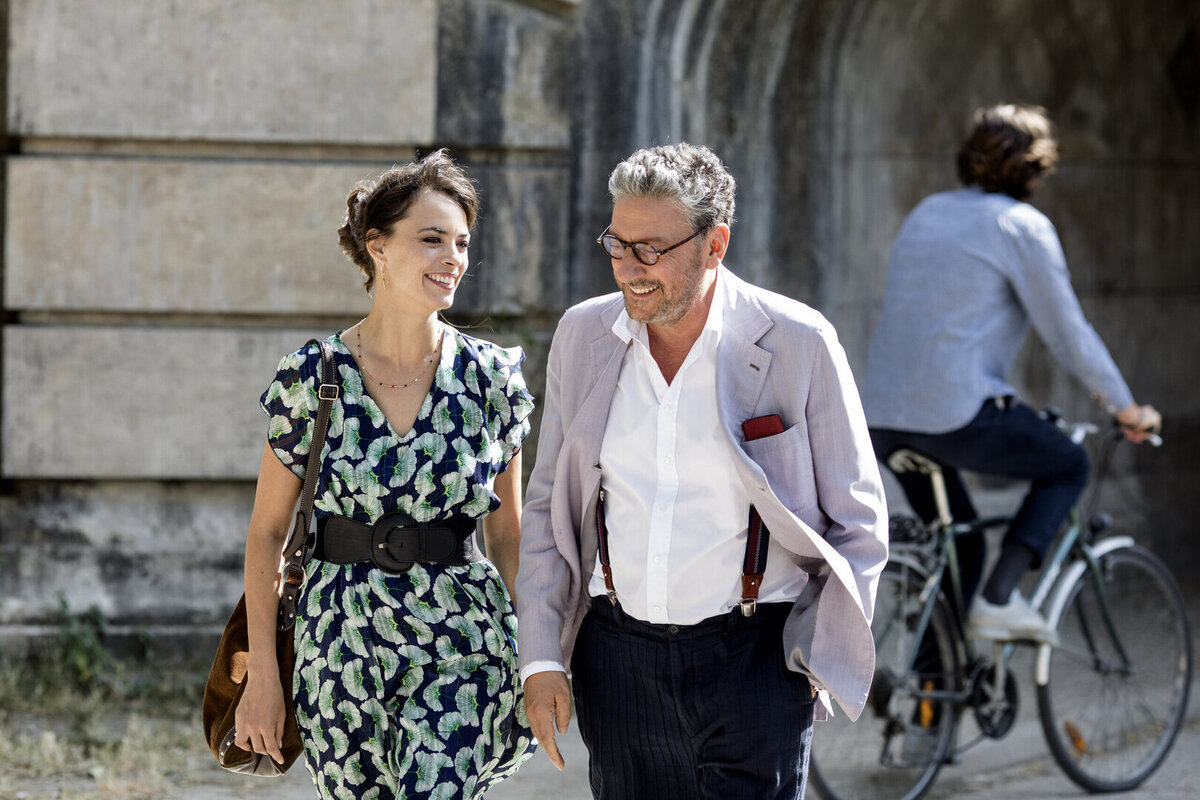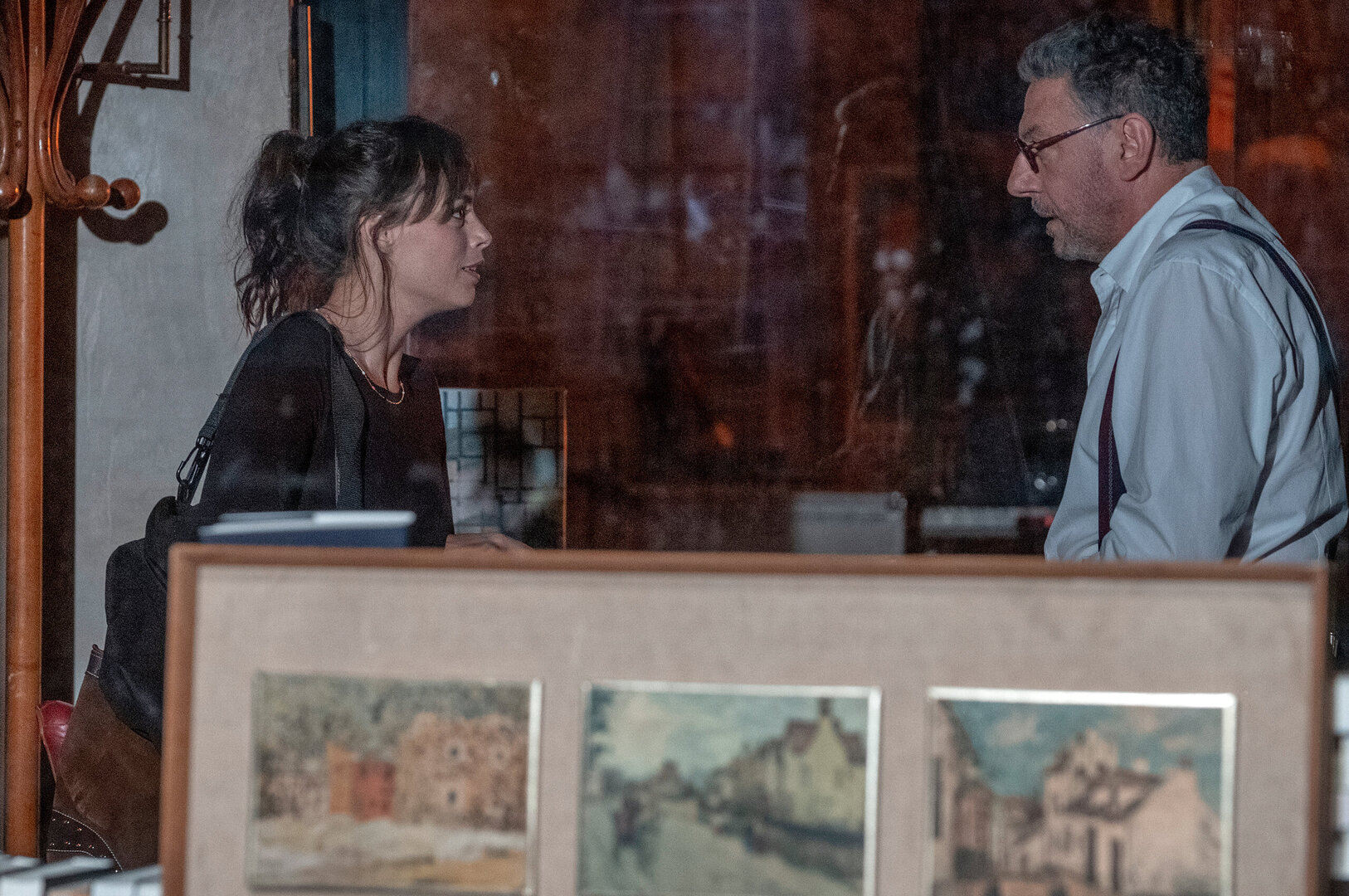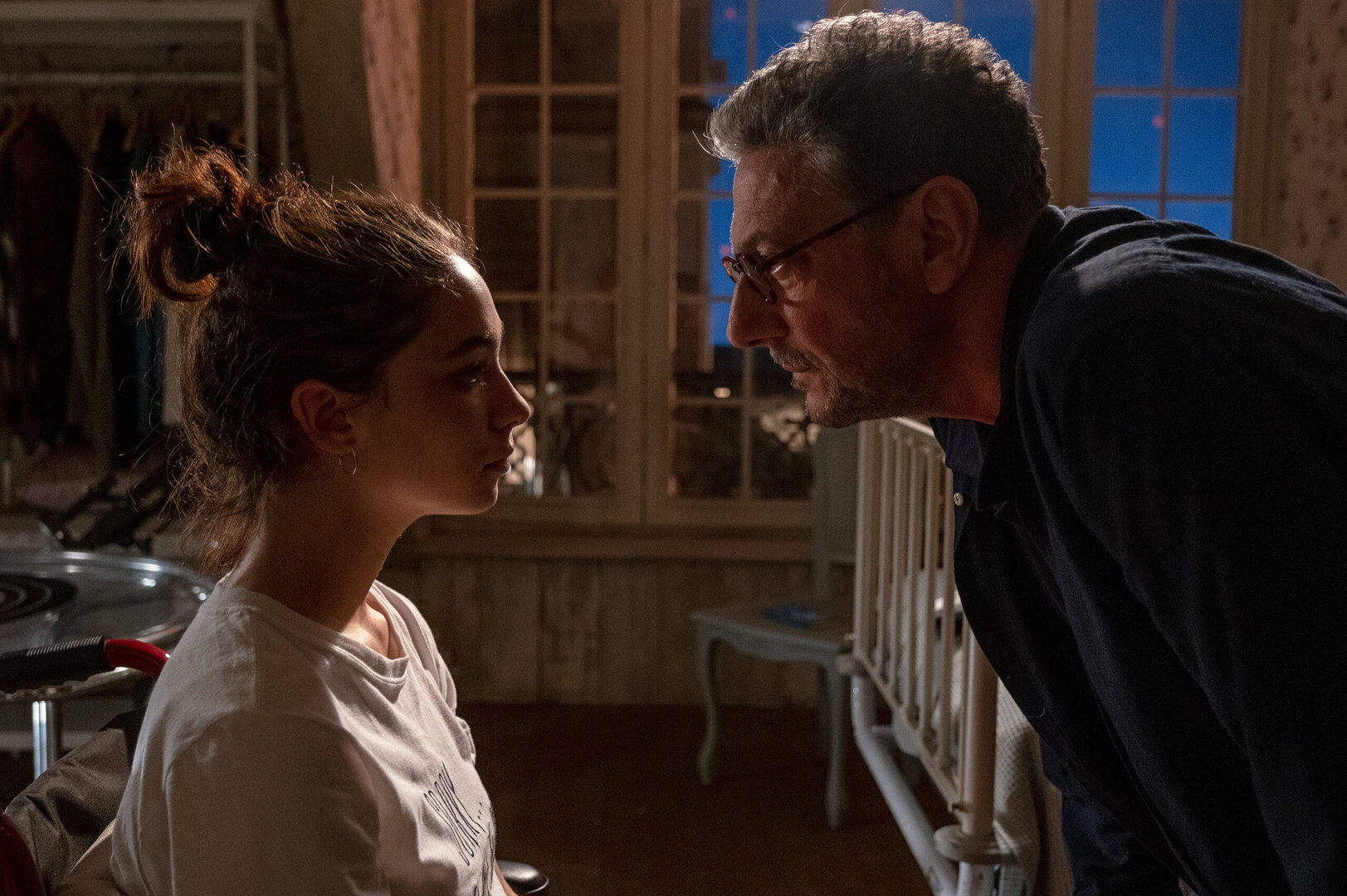«The emotional material» - Film Review by Kinoafisha

An old-fashioned melodrama about awakening to the taste of life.
Italian Vincenzo (Sergio Castellitto) lives in the center of Paris and owns a small bookstore. Every morning he opens its doors, sets up postcard stands outside, diligently sweeps the sidewalk in front of the entrance, and greets the neighbors. Vincenzo doesn't have a mobile phone, a computer, or a cash register. He conducts business in an old-fashioned way, caring so little about profit that he allows some customers to steal books. On the second floor of the house where the shop is located, Vincenzo's daughter Albertina (Matilda De Angelis from the series "Rewind") lives. She is confined to a wheelchair and refuses not only to go outside but also to communicate with those around her. The inscription on her T-shirt reads: "Sorry, I have no words."
One day, a woman (Bérénice Bejo) literally bursts into the store, searching for her lost dog. From the threshold, the stranger unleashes a long monologue, from which Vincenzo learns that she is an actress working at a local theater. After this encounter, Yolanda (as the disrupter of peace is called) begins to visit the bookstore regularly, each time putting on a small performance for the owner. Initially, Vincenzo is frightened by her eccentricity, but gradually he becomes more accustomed to these visits. However, Yolanda is still forbidden from entering the second floor.
The opening credits are set against a theater curtain. In the first scene of the film, it opens, and in the final scene, it closes (there is also an encore, so don't rush to leave the theater). The presence of the curtain should immediately hint to the audience that everything happening on the screen has no relation to reality. The second clue is the set design. The creators of the film don't even attempt to hide that the shots are taking place in soundstages. Paris here is toy-like, consisting of a tiny square. The Eiffel Tower is either drawn or made of cardboard. There's nothing for lovers of French romance to catch.

The story told in the film does not belong to Sergio Castellitto. Its author is the great Italian director Ettore Scola, who passed away six years ago. Together with two colleagues, Scola wrote a film script that was never realized, but instead turned into a graphic novel. After the maestro's death, Castellitto, considering himself his disciple, rewrote the text together with his wife, actress and screenwriter Margareth Madzantini.
The old-fashionedness of the main character, played by the director himself, holds the key to understanding the film. Castellitto summons the shadows of Italian classics and openly states that modernity is far from their reach. The unity of action, unfolding literally within a few square meters, is a nod to Scola, whose best works, from "Ball" to "The Family," often did not extend beyond the four walls but spanned decades and connected generations. The pavilion in which "A Bookshop in Paris" was filmed is also not just a room. It is the recently restored Teatro 5 of Rome's "Cinecittà" studio, Federico Fellini's beloved space, the place he called home.
However, in his attempts to contrast the greatness of antiquity with reality (and the greatness of classical art), Castellitto, a director far less talented and sensitive than Scola, ends up delivering not an homage or a romantic fairy tale, but a collection of silly cliches. The only option for breakfast in Paris is coffee with a croissant. The only option for a date is a boat ride on the Seine. The symbol of silence is a fish in an aquarium. An lonely woman is always accompanied by a Chekhovian dog (even if fictional). And of course, "all the world's a stage, and all the men and women merely players." Well, in case you haven't heard that before.

French actress Bérénice Bejo was not very lucky: an Oscar nominee and winner of the Cannes Film Festival, she plays the typical Manic Pixie Dream Girl, an outdated archetype devoid of narrative independence, only necessary for directors to bring to life a gloomy or troubled hero. It is truly astonishing how, having two stunning heroines in the script (one of them in a wheelchair and likely in deep depression), the whole film is still reduced to the suffering of a perfectly healthy man. Yes, this was commonplace among the classics, and perhaps "A Bookshop in Paris" will appeal to lovers of romantic retro. But for others, its grandiosity will surely seem excessive. This extravagant spectacle is definitely not the season's highlight.
